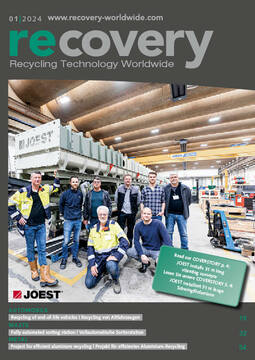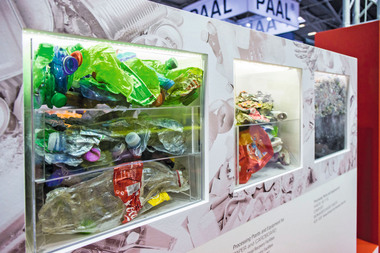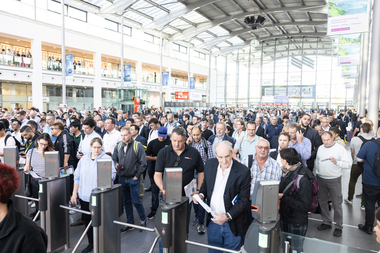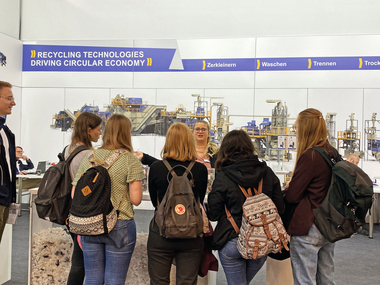Mastering the current challenges of the circular economy
Recycling all types of secondary raw materials is an immensely important and interesting, but often also very challenging task, as the partner associations of the world’s leading environmental technology trade fair IFAT Munich illustrate with examples.
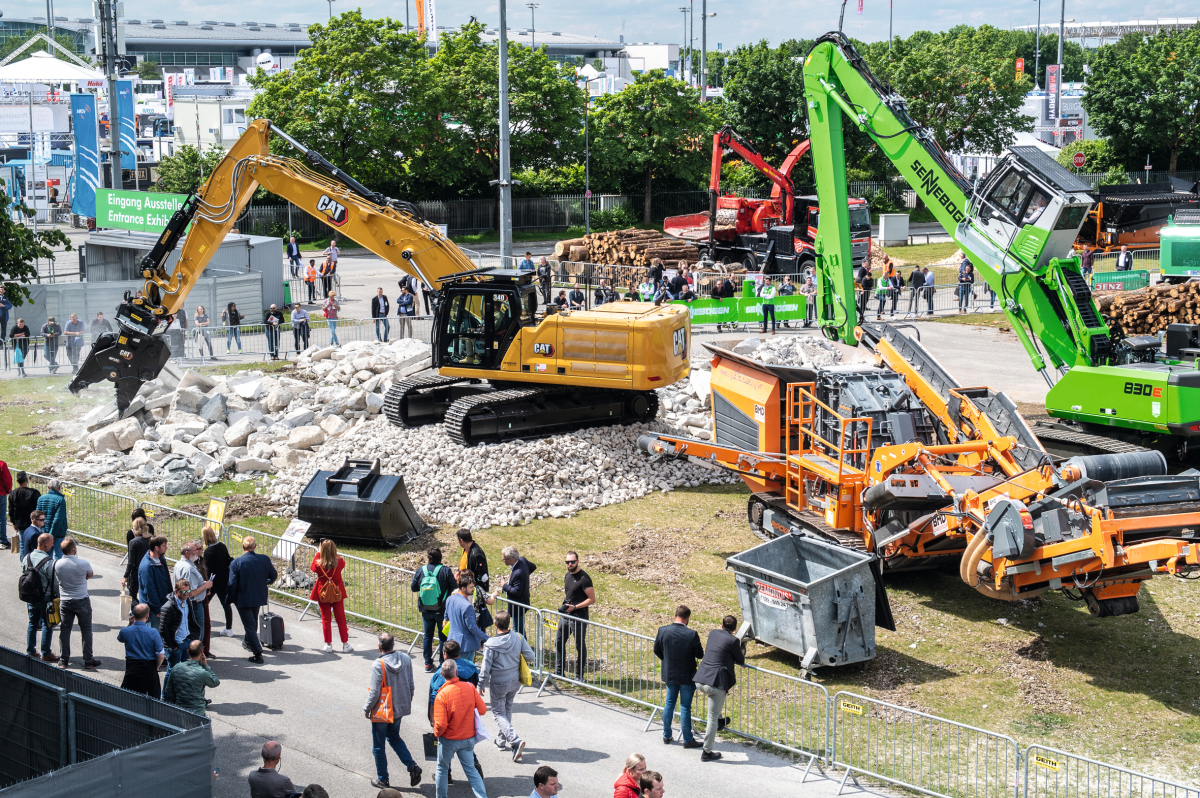 Circulation of secondary raw materials is again a big topic at IFAT Munich
Circulation of secondary raw materials is again a big topic at IFAT Munich
© Messe München
The next IFAT Munich will take place at the Munich Exhibition Center from May 13 to 17, 2024. For the circular economy sector, preparations for the world’s leading trade fair for water, sewage, waste, and raw materials management are taking place during an extremely tense economic phase. Eric Rehbock, CEO of the German Association for Secondary Raw Materials and Waste Management (bvse), reports: “We are experiencing lower collection volumes, declining demand, rising inventory levels, and falling prices for wastepaper and scrap. The plastics sector presents a similar picture, with a brutal price war raging between virgin material and recyclates.” Waste management companies, with their high transport volumes and complex plant technology, are also under huge cost pressure due to the massive increase in prices for energy, tolls, spare parts, and maintenance work.
Joint effort to exit the recession
“In order to see the crisis as an opportunity, the recycling and waste management industry must now focus all its efforts on a sustainable circular economy. That also means that we have to focus more on efficiency and quality in our recycling plants, vehicle fleets and work processes – wherever that is still possible,” says Rehbock. In his experience, IFAT Munich brings together a wide range of representatives from business, politics, and research. The association’s head is convinced: “This is exactly the mix that we need to work our way out of the recession,” and adds: “The bvse is also committed to this and will be presenting many interesting companies and ideas at its large joint stand in Munich.”
Substantial progress in chemical recycling
With regard to plastics recycling, Plastics Europe Deutschland e. V., the association of plastics manufacturers in Germany, currently sees a lot of movement in the industry. Managing Director Ingemar Bühler: “We are seeing significant developments in mechanical processes, and substantial progress in chemical recycling for much better yields with lower energy consumption.” He believes that the processes will continuously become more efficient and complement each other. Plastics Europe Deutschland is positioning itself on these topics at IFAT Munich together with eight member companies.
The German Mechanical Engineering Industry Association (VDMA) will also be showcasing the latest options for recycling plastics at the leading international environmental technology trade fair. Its Spotlight Area, focusing on chemical recycling, will send visitors on a tour through the world of recycling – from collection and sorting to the new product. “Recycling has increased significantly in Europe in recent years. The fact that 32.5 % of the plastics produced in the EU can currently be recycled, and even over 35 % in Germany, is primarily due to state-of-the-art waste and recycling technology. But we still have potential that needs to be exploited,” says Dr. Sarah Brückner, Managing Director of the VDMA Waste and Recycling Technology Association, analyzing the current situation. “Over 42 % of plastic waste is still used today to produce energy, as the different types of plastic are combined or heavily contaminated,” Richard Clemens points out. The Managing Director of the VDMA Process Plant and Equipment Association continues: “Chemical recycling – as a supplement to mechanical recycling – can help close this gap in order to keep the material even more effectively in the cycle.” In Hall B4, the association will also be addressing one of the biggest concerns in mechanical and plant engineering: the shortage of skilled workers.
The VDMA Waste Treatment and Recycling Technology Association will also be presenting two live demonstration formats in the outdoor area: At the VDMA Demonstration Days, large mobile machines for processing biomass will be demonstrated, while the VDMA Crushing Zone will present solutions for demolishing and recycling construction and demolition waste. The demonstrations will be complemented by the new VDMA pavilion.
Trend topic: circularity for e-mobility
It is not just since the EU Battery Regulation came into force in August 2023 that the Federal Association of the German Waste Management, Water and Recycling Industry (BDE) and its member companies have been anxiously awaiting its impact on the production, use, and recycling of battery systems for electromobility. “Whether and how ambitious quotas can be achieved here in recycling and in reusing recyclates in products will be decided now,” explains BDE President Peter Kurth, saying that it must be ensured that production and recycling interact well. “We will only meet the purpose of the Battery Regulation and the Critical Raw Materials Act – namely to recycle raw materials in the EU – if we take recycling into account in production and consumption from the outset. Otherwise, these critical resources will not be available for the energy and transport transition in the EU,” Kurth goes on to say.
With this in mind, the BDE is organizing a Spotlight Area at IFAT Munich that will not only focus on the battery material flow. Under the title “Circularity for E-Mobility”, the association, together with partners from the automotive sector and other industries, will highlight various materials that are needed in car production to enable electromobility. The central element of the trade fair appearance is the presentation of individual events in the battery cycle, but also the presentation of cycles for metals, plastics, and other materials in car production. “We must view the vehicle of the future as a complete package. With our best practice examples, we want to show that the loops for batteries and other materials are already being closed,” announced Kurth.
Promoting customized recycled steel
The prerequisite for making more use of recycled steel is for it to be of the highest possible quality and to be adapted exactly to the requirements of the respective steel production process. According to the Federal Association of German Steel Recycling and Disposal Companies (BDSV), innovative cleaning, sizing, analysis, and sorting processes can be used to effectively separate inferior steel scrap. And the process optimization goes even further: By accurately determining the size of recycled steel using a shredder and subsequent chemical analysis, the resulting material can be separated and cut according to its composition. Intelligent tracking and handling solutions in combination with process automation calculate the optimum mix for the composition of the recycled steel.
However, the development of these new processes is very costly and, according to the BDSV, cannot be borne by the companies in the steel recycling industry alone. The IFAT Munich partner institution therefore calls for targeted funding for material recycling along similar lines to the energy-related support for hydrogen-based steel production, the implementation of which is already becoming much more expensive than previously assumed. The aim is to improve scrap quality in all steel production processes. According to the BDSV, the publicly funded research project REDERS (reduced CO2-emissions through increased recycling quota in the steelmaking process) in North Rhine-Westphalia is an example of the forward-looking results that are possible as a result.
The market aspects presented here are just a few highlights from the cosmos of topics that IFAT Munich covers on waste and recycling management alone. The overall picture of the industry in May 2024 will be completed by solution tours, the varied lecture program, and of course by the professional and technical expertise of the exhibiting companies.

